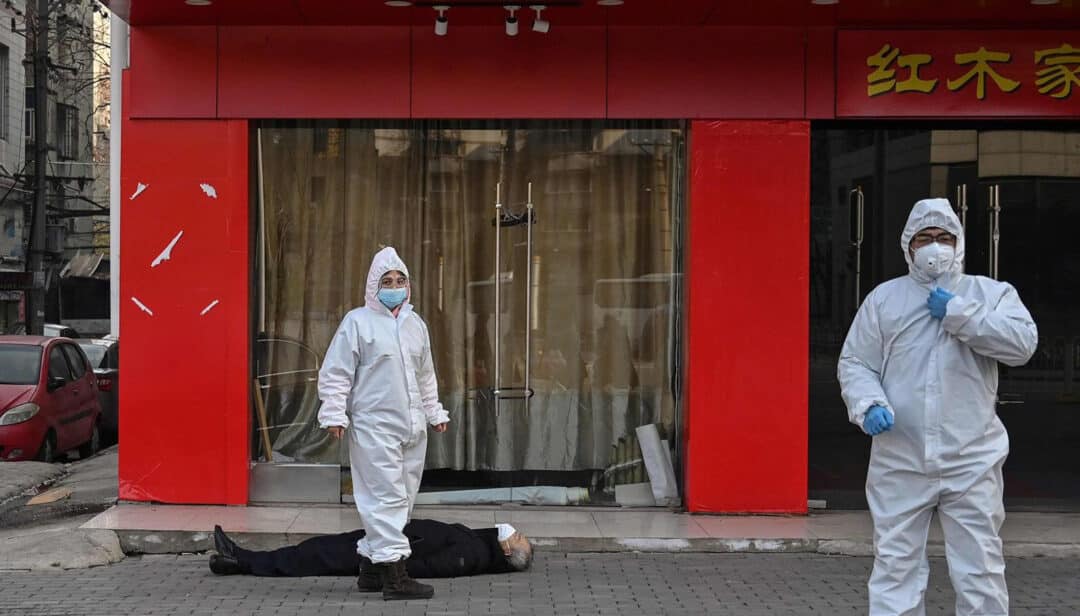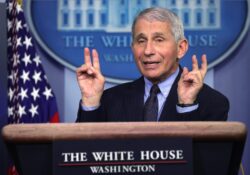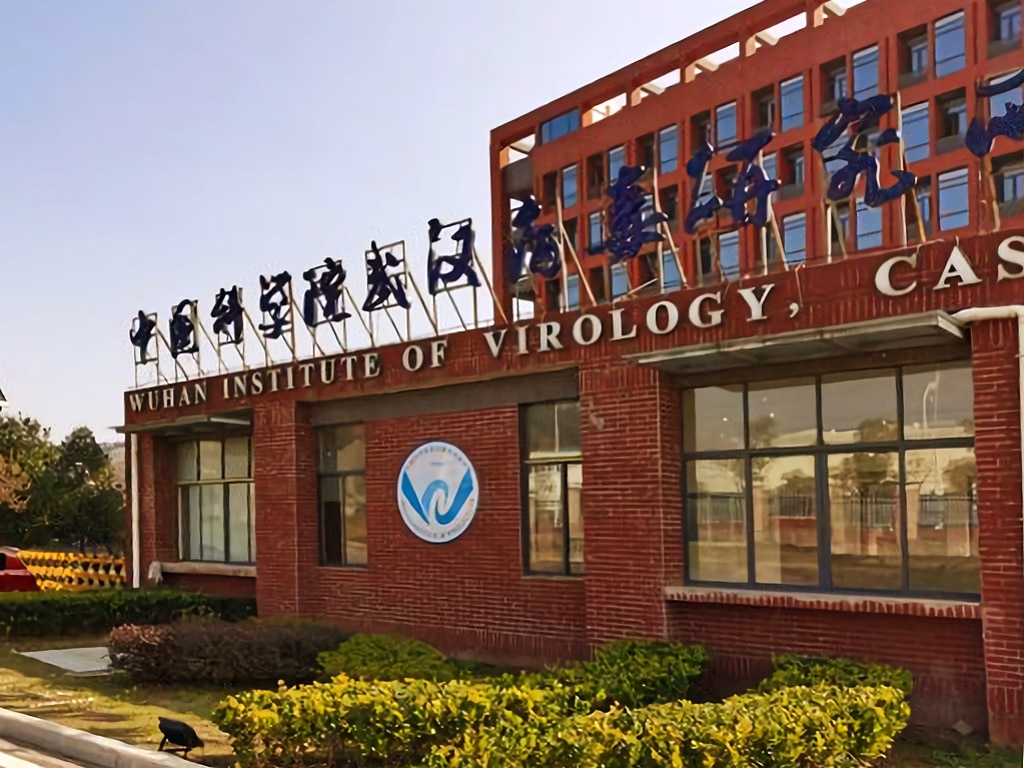

Wuhan’s “Mystery Illness” is Covid’s Foundational Lie
by Kit Knightly | Mar 30, 2023
Recently, while researching our updated edition of 40 Facts, I came across this article from Time magazine, one that I had apparently missed when it was first published and that had somehow escaped my notice in the following three Covid-centric years.
The article demonstrates how, from the very beginning, the covid narrative was a psy-op construct, that never made any internal sense.
It focuses on the work of Chinese virologist Dr Zhang Yongzhen, and how he and his team (allegedly) isolated the Sars-Cov-2 virus and sequenced its genome. The article frames Zhang as a hero whose “bravery” alerted the world to a scary new threat.
It’s just a story, of course – a piece of narrative fiction rather than journalism – but it does reveal a key facet of the pandemic psy-op roll-out.
The foundational lie, the original sin: Covid’s “mysterious” origins.
Every psychological operation has one underlying weakness – an uneven seam where the manufactured lie is forcibly joined to inescapable reality.
For 9/11 this is simple physics – asymmetrical damage cannot cause symmetrical collapse. For JFK it is the alleged number of bullets causing a known number of wounds, alongside the president’s head going back and to the left.
Oftentimes, the main thrust of any accompanying propaganda is to distract from these irreconcilable ideas. Place a selective distorting lens over certain hard-coded physical realities that forces people to question things they would never usually question.
Those weren’t really explosions – they just sounded like it.
His head didn’t really go backwards – it just looked like it did.
…you get the idea.
For “covid”, this fractured disconnect can be located very specifically to Wuhan in December 2019.
The alleged timeline of the “discovery” of Covid is pretty well known, but here is a quick recap:
- In mid-December 2019, 4 people were admitted to Wuhan hospital with pneumonia. By the end of the month, that number had grown to 27.
- One unnamed doctor decides this pneumonia is “mysterious”, and sends one sample from one patient to Dr Zhang of the Shanghai Public Health Clinical Center for analysis.
- Dr Zhang tests this single sample, from just one of 27 alleged patients with pneumonia, immediately finds a “new coronavirus”, and at once decides it must be the cause of this “mystery”.
There are numerous problems with this story, and indeed the timeline of events that speedily followed – from the sequencing to the modelling to the development of testing assays.
But strangest of all is the question the official narrative never even attempts to answer:
why were they looking at all?
That’s the break with reality.
Why did that doctor in that hospital suddenly decide there was a mystery that needed an explanation?
What was there to mark out those few patients as different from any of the other 450 million people who get pneumonia every year?
The Time article claims vaguely that this pneumonia was “peculiar”, other contemporary publications called it “mystery pneumonia”. They never really explain the nature of this “mystery”.
The WHO called it pneumonia of “unknown aetiology”, while the CDC said it was an “atypical pneumonia-like illness that does not respond well to standard treatments”. But “the standard treatment” for pneumonia is antibiotics if you think it’s bacterial, or bed rest and fluids if you think it’s viral. The vast majority of the time it gets better on its own in a couple of weeks…just like “Covid”.
Some articles remarked that the “mysterious pneumonia” was symptomatically unique, without ever going into details. But we now know that’s not true. “Covid” has never been symptomatically different from the majority of common respiratory diseases.
The WHO even said in their initial press release, on January 8th 2020:
The symptoms reported among the patients are common to several respiratory diseases, and pneumonia is common in the winter season;
That sentence is completely true…so-called “covid pneumonia” is just – pneumonia.
So why did the doctors in China ever consider it worth a second look?
Why did anyone think this perfectly normal pneumonia must have an abnormal cause?
None of this makes any sense. None of it ever made any sense.
You can keep looking for the answer, keep asking “why did they think this pneumonia was different?”, and find nothing but a tangle of vague assertions that don’t hold up to any kind of analysis.
There was no reason for that doctor to think those patients were suffering from anything other than a normal, seasonal respiratory infection.
His alleged actions are not those of a rational real-life person, they are the scripted behavior of an actor who needs to perform a particular function for only one reason – so the rest of the movie can happen.
We’re back to that one big lie, the invitation to suspend disbelief and accept a contradiction in terms, just like 9/11 and JFK.
For the “pandemic” narrative it’s this: “Covid might look and feel and act like the flu – but it’s actually special and different.”
That’s always going to be the faultline when you simply make up a new disease.
What’s more, they clearly always knew this would be the weak spot in their story, so they hurried through it. They needed to fast-track their “new disease” into existence so they discovered it, named it, sequenced it, published it, and could test for it…all in less than three weeks.
It was fast, “very, very fast” Zhang acknowledges in Time. Too fast, really. They spoiled the ending, revealed the killer before the murder had even happened.
The world has moved pretty quickly in the last three years, changed to the point of being almost unrecognisable, and if you want to understand how it all started you have to travel back in time. Past vaccines and ventilators. Past passports and PCRS. Past Pfizer and Fauci and flattened curves…back to the very beginning.
All the way back to Wuhan, China, December 2019. Where, we are told, one doctor saw four cases of stereotypical pneumonia and called it “mysterious”, and one virologist started looking for something he had no reason to think even existed, and just so happened to find it.
This article is part of our “Covid – Three Years On” series.





0 Comments